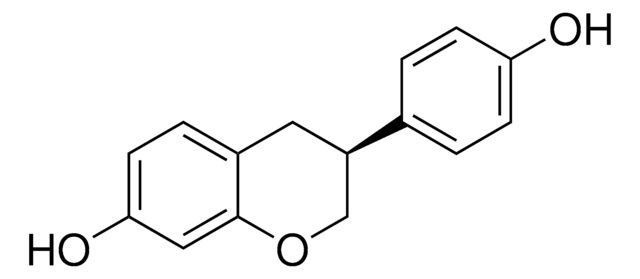42418
D-Lactaldehyde solution
≥95.0% (TLC), liquid
Synonym(s):
(2R)-2-Hydroxypropanal solution, (R)-2-Hydroxypropionaldehyde solution
About This Item
Recommended Products
product name
D-Lactaldehyde solution, 1 M in H2O
Assay
≥95.0% (TLC)
Quality Level
form
liquid
optical purity
enantiomeric ratio: ≥98.0:2.0 (HPLC)
concentration
1 M in H2O
storage temp.
−20°C
SMILES string
C[C@@H](O)C([H])=O
InChI
1S/C3H6O2/c1-3(5)2-4/h2-3,5H,1H3/t3-/m1/s1
InChI key
BSABBBMNWQWLLU-GSVOUGTGSA-N
Biochem/physiol Actions
Storage Class Code
10 - Combustible liquids
WGK
WGK 3
Flash Point(F)
Not applicable
Flash Point(C)
Not applicable
Certificates of Analysis (COA)
Search for Certificates of Analysis (COA) by entering the products Lot/Batch Number. Lot and Batch Numbers can be found on a product’s label following the words ‘Lot’ or ‘Batch’.
Already Own This Product?
Find documentation for the products that you have recently purchased in the Document Library.
Customers Also Viewed
Our team of scientists has experience in all areas of research including Life Science, Material Science, Chemical Synthesis, Chromatography, Analytical and many others.
Contact Technical Service










